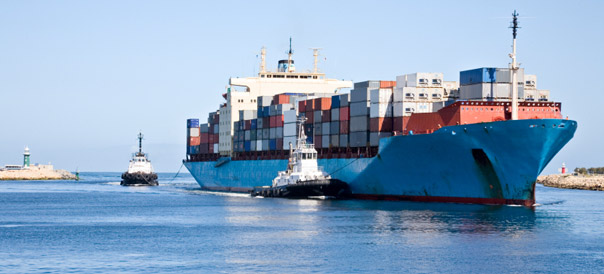The Head, Department of Geography/Transport, University of Lagos, Prof. Iyiola Oni, has urged the Federal Government to bridge the revenue gap created by the slump in crude oil prices in the international market.
The don, who made the plea in a message to the 9th Anniversary of the Trans Quest Media on Saturday in Lagos, urged government to harness the potential of the maritime industry.
Oni was represented by a Senior Lecturer in the Department of Geography, University of Lagos, Dr Emmanuel Ege.
The don spoke on the topic: “The pros and cons of the evolving change as it affects the revenue drive of the nation’’.
He said that government could take advantage of reforming its policies and infrastructure as part of measures to adequately harness revenue potential in the maritime sector.
Oni explained that government could look inward to source for more revenue, adding that it should be properly planned in other not to lose revenue being generated from import duties.
He said that there was need to make the environment more friendly to attract international trade especially, export product.
Oni said that adequate rail lines linking the ports’ major cities in Nigeria would improve the Inland Container Depots (ICDs), operations and also reduce traffic congestion on the major roads.
He said that under the Free On Board (FOB), terms to Cost Insurance and Freight (CIF), the buyers of Nigeria’s crude oil were responsible for arranging shipment and purchasing.
Oni said that Nigerians were being denied the opportunity of capturing the value that would have accrued to the economy through the FOB terms.
He explained also that CIF required the seller to arrange for the carriage of goods by sea to the port of destination which provided the buyer with the necessary documents to obtain the goods from the carrier.
He said that Nigeria was losing huge revenue because in spite of the fact that nation had the required tonnage, the buyers determined the terms of freight for export/import.
The Don said that statistics had shown that Nigeria lost over 3.9 billion dollars annually on freight of crude oil.
“The recommendations were designed to mitigate the loses Nigeria incurs from the freight component in the export of about 2.7 million barrels of crude oil per day which currently goes to foreign shipping lines.
“Nigerian Ports Authority (NPA) has continued to undertake the massive reconstruction of quay walls, rehabilitation of harbour moles, ports access roads and siding.
“NPA has accomplished 80 per cent of wrecks removal which has also ensured that draught requirements for safe navigation of oil and gas tanker as well as big vessels are achieved.
In a message to the event, the Director-General, Nigerian Maritime Administration and Safety Agency (NIMASA), Dr Dakuku Peterside said that the present management of the agency would soon come out with a plan on how to disburse the Cabotage Vessel Financing Fund (CVFF).
Peterside, who was also represented by the Head, Training and Development of NIMASA,, Alhaji Bashir Jimoh, said that changes in the leadership had been hindering the disbursement of CVFF fund.
He said that the new leadership of the agency had taken a bold step by engaging maritime stakeholders who made suggestions.
Peterside said that NIMASA’s management would soon come out with plans to disburse the fund.
“The CVFF fund is intact. Nobody touched fund but very soon, the present management will come up with strategies on how to disburse the fund.
“The new director-general of NIMASA has done a lot to tackle the challenges in the maritime industry,” Jimoh said.
He explained that all developed nations started with sound maritime policies to develop their economies.
Jimoh said that in the past, Nigeria got things right, adding that in the 70s, we had about 24 vessels but presently Nigeria had no vessel.
Jimoh said that under the leadership of Peterside, the management had been able to brainstorm with stakeholders who had expressed their challenges for NIMASA to proffer solutions.
He, however commended the organisers of the event for organizing a meaningful programme that would add value to the maritime industry.
Also speaking, the Chairman of the occasion,, an Assistant Corps Marshal of the Federal Road Safety Corps (FRSC), Mr Nsebong Akpabio, said that the transport subsector of Nigeria’s economy offered a large avalanche of opportunities for developments that still remained untapped.
Akpabio said that according to the National Bureau of Statistics, the Gross Domestic Product (GDP) from the transport sector had increased in the first quarter of 2015 from what it used to be five years ago.
He said that there was need for the industry to be accelerated in order to optimise the availabie opportunities through strategic investments and management.
The Publisher/Editor-in-Chief, Trans Quest Magazine, Mr Felix Kumuyi, urged the Federal Government to evolve vibrant policies through the various knowledgeable technocrats that abound within the transport/maritime sector.
Kumuyi noted that there were many prominent and well respected personalities who could occupy key positions within the industry to drive its full potential.
He said that President Muhammadu Buhari’s administration had improved transparency with the introduction of Treasury Single Account (TSA), as well as forex policy to discourage wastes of foreign currencies as well as capital flight.
He, however appealed to government to look into the forex policy and assist shippers to have access to foreign exchange to surmount the problem of declining revenue. (NAN)

